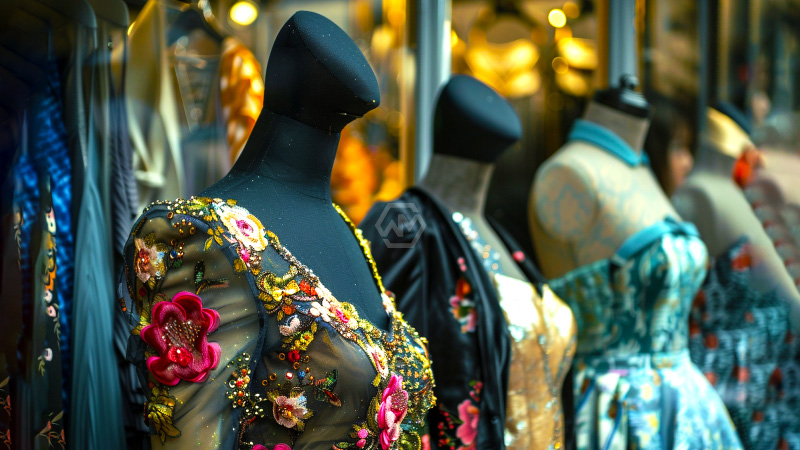- Taliban‘s edict prohibits depictions of human faces, affecting fashion displays.
- Mannequins in Kabul are covered with plastic or foil to comply with the ban.
- The restriction has not significantly impacted sales but has led to visual oddities in storefronts.
In Kabul, shop windows are now showcasing faceless mannequins as a result of the Taliban’s strict interpretation of Islamic law, which bans the depiction of human faces.
The new rule, introduced in January 2022, reflects the broader cultural and societal restrictions imposed by the Taliban since their return to power in August 2021.
Afghanistan’s Faceless Mannequins: A Symbol of Taliban’s Cultural Policies
The Taliban’s enforcement of an edict against depicting human faces has led to a distinctive alteration in Kabul’s fashion retail scene. Mannequins, once fully dressed, now appear headless, with their faces obscured by plastic or foil. This change aligns with the Taliban’s broader efforts to ensure that public displays adhere to their interpretation of Islamic values.
The imposition of this rule has prompted a shift in the way clothing is presented in Afghan stores, including those selling traditional and modern garments. Despite the visual oddity created by the faceless mannequins, shopkeepers report that their sales remain stable, indicating that customers are more focused on practical concerns.
The regulation has become a regular aspect of daily business operations, with stores adjusting their displays to avoid conflict with the Ministry for the Propagation of Virtue and the Prevention of Vice. Some shopkeepers anticipate further restrictions, such as covering mannequins’ arms, reflecting ongoing adaptations to the evolving legal landscape.
While the faceless mannequins might seem like a striking symbol of the current cultural climate, many in Kabul see it as a minor issue compared to the broader socio-economic challenges and the severe restrictions on women’s education and employment. The focus for many remains on addressing these more critical problems.
The faceless mannequins in Kabul illustrate the extent to which the Taliban’s cultural policies impact everyday life, transforming ordinary retail practices into a reflection of their stringent values. While these changes may seem unusual, they are part of a broader effort to align public displays with the regime’s interpretation of Islamic law.
“It makes the display a bit ugly,” said the 22-year-old, but it “doesn’t affect sales”.



